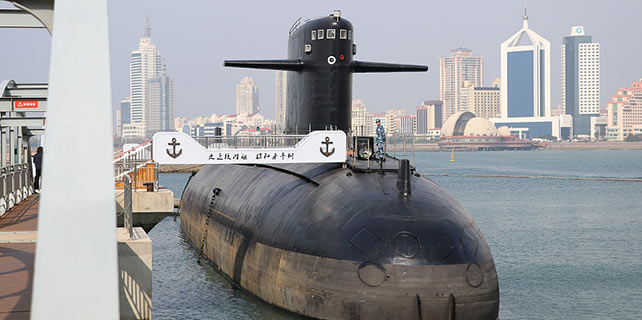Bad loans stabilize, capital flight eases: Central bank official
 |
|
An employee counts yuan banknotes at a bank in Huaibei, Anhui province, June 22, 2010. [Photo/Agencies] |
NEW YORK - China's non-performing loans have stabilized and pressure from capital flight has eased off, Yi Gang, deputy governor of the People's Bank of China, said here on Monday.
Yi made the remarks at the International Finance and Infrastructure Forum in New York. While acknowledging that China's financial market still faces different types of risks, he said that "the overall risk is under control."
"Non-performing loans are getting pretty much stabilized after a long time of climbing," said Yi.
China's non-performing ratio declined in the fourth quarter of 2016, the first time since 2012, suggesting that the loan losses that have posed risks to the country's financial market are finally easing. At the end of 2016, lenders saw the ratio of their non-performing loans fall to 1.74 percent, slightly down from 1.76 percent a quarter ago.
"The capital outflow pressure has been alleviated recently but still we have to keep an eye on the phenomenon and see what the underlying reason is," Yi said.
He pledged to improve shadow banking regulation and transparency and monitor non-performing loans, capital outflow and divergent movement of property prices in cities in order to prevent systematic risks.
China has made great efforts to open up its financial market and will further open up its bond market to foreign investors along with the internationalization of the renminbi, the deputy governor said.
He added that steady progress has been made as the country opened up its onshore bond market to overseas investors, introduced more investment products and opened up market to more foreign bond issuers.
"By the end of last year, there are over 400 foreign institutions investing in China's interbank bond market with a total amount of more than 800 billion yuan ($116.17 billion)," Yi said.
The central bank will continue to work to solve problems like low-efficiency and lack of transparency to make the market more accessible to foreign investors, he added.
The forum was co-hosted by Bloomberg LP, China General Chamber of Commerce - USA(CGCC), with the help from the National Governors Association.









